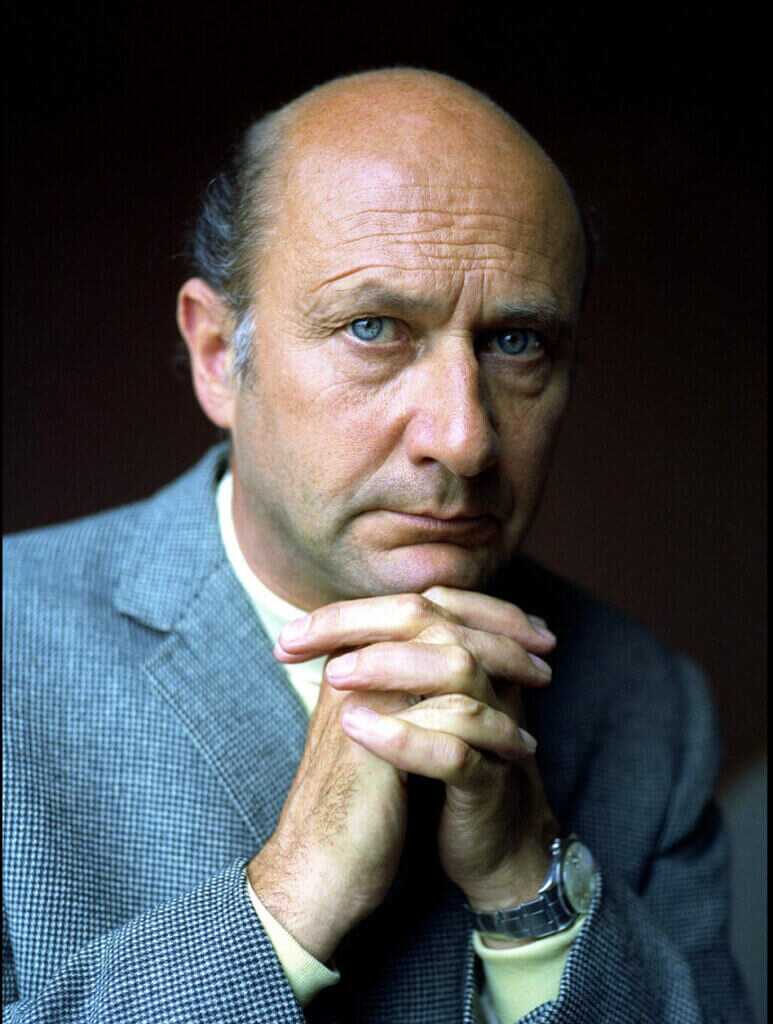
Estimated reading time: 12 minutes
Donald Pleasence was born in October of 1919 in Worksop, Nottinghamshire, in the United Kingdom to Alice and Thomas Stanley Pleasence. Thomas was a railway station master. Young Donald was reared in a strict Methodist household and took his faith seriously. After a brief stint working at Swinton railway station, Donald announced his wish to become an actor.
Table of contents
In 1939, the 20-year-old got his shot with the Jersey Repertory Company. His penetrating blue eyes, intense look, and unique voice all synergistically combined to create a certain compelling stage presence. It seemed the young thespian was going places. Then Hitler had the bad grace to invade Europe. Now hold that thought…
Pleasence: Ever the Bridesmaid
Pleasence amassed an extensive filmography, though he was best known for his supporting roles. By my count, he played in some 145 feature films as well as countless television shows. Some of those were low-budget flicks like The Flesh and the Fiends, Frankenstein’s Great Aunt Tillie, and The Pumaman. Pumaman was an Italian superhero movie that was featured on the parody show Mystery Science Theater 3000.
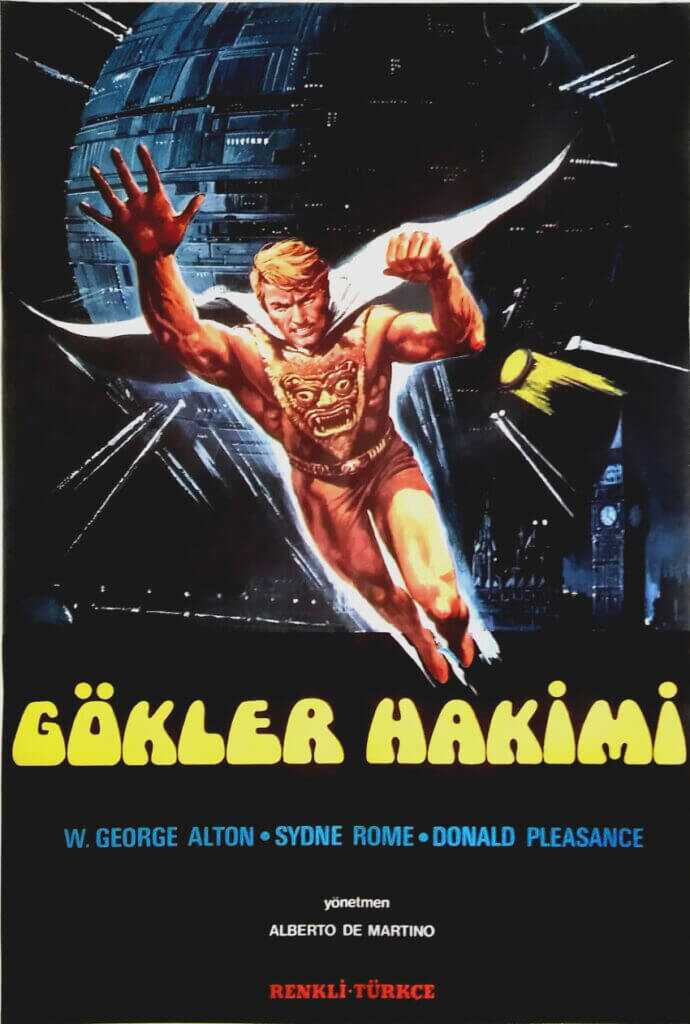
Donald Pleasence Was Quite The Hero
As a random example, Pumaman had an admittedly compelling premise. The 1980 sci-fi epic posited that aliens had visited the earth thousands of years ago and been revered as gods by the Aztecs. While here they got it on with some hot human chick and sired Pumaman, a demigod endowed with amazing powers who was destined to defend the people of Earth against evil or some such. To aid in his holy mission, Pumaman was given a gold mask that allowed him to control people’s minds. Fast forward to the present day and the eminently evil Dr. Kobras played inimitably by Donald Pleasence plans to use the mask to become the grand potentate of the entire world. Naturally, only Pumaman can stop him.
Lots of other stuff happens involving magic amulets and a golden power belt. With mind-control flying back and forth like tater tots at a grade school food fight, eventually, Pumaman uses his powers to crash a helicopter carrying Dr. Kobras. Now having saved the planet, Pumaman snatches up the obligatory hot babe and retreats to Stonehenge where he summons the aliens back for a tearful family reunion. They help return the magic mind control mask to its hiding place in the Andes, and Pumaman literally flies off with the hot girl, fade to black.
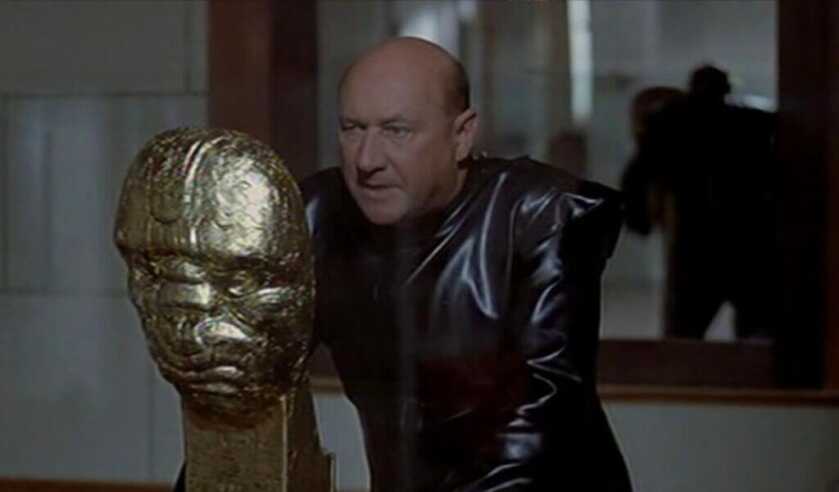
Destined For Some Epicness
Hmmm…I guess they have lots of filmmakers in Italy but a relative dearth of decent writers. I myself own a word processor. Perhaps I should apply. Regardless, the point is that some of Donald Pleasence’s big screen vehicles were, shall we say, hardly Oscar material. However, some others knocked it out of the park.
Pleasence did seem destined to play some epic supporting roles. He was the President of the United States in the John Carpenter tour de force Escape From New York. He also played Dr. Samuel Loomis, the investigative psychiatrist pursuing Michael Meyers through four different Halloween movies. He was included in a fifth, Halloween Kills, after his death via the use of archival footage.
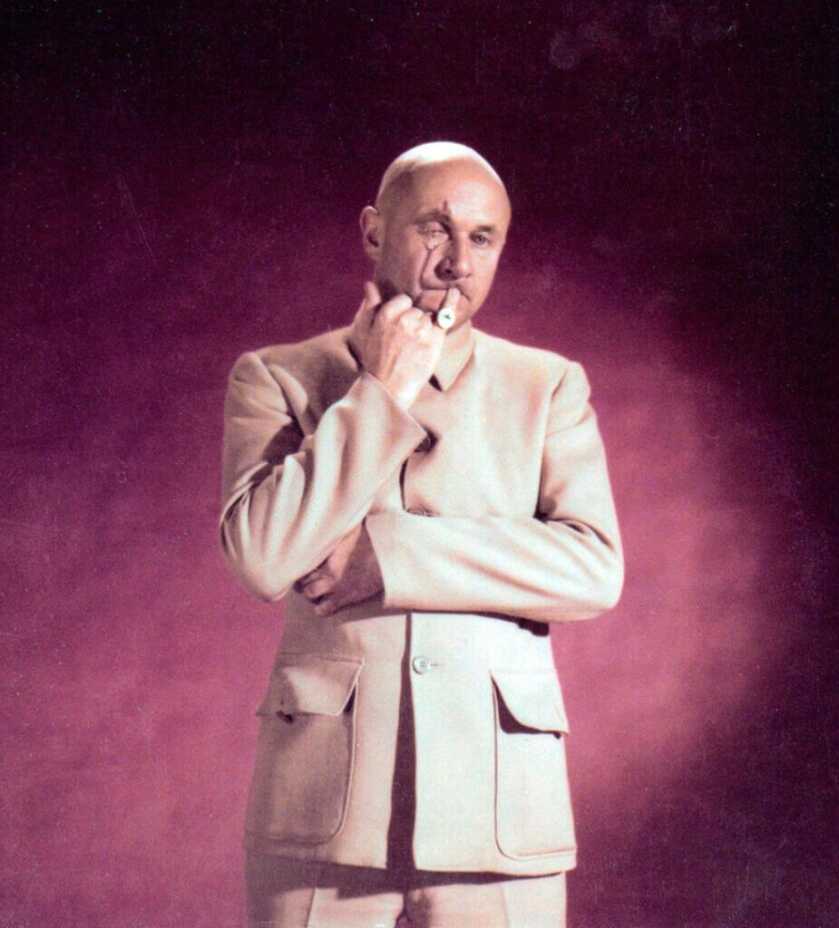
Pleasence played the devil in The Greatest Story Ever Told and SS leader Heinrich Himmler in the 1976 war epic The Eagle Has Landed. His depiction of 007 villain Ernst Stavro Blofield in the 1967 James Bond movie You Only Live Twice eventually inspired the Austin Powers comic bad guy Dr. Evil. That the man had some serious acting chops is not in question. However, one role more than all the others projected unusual depth and power.
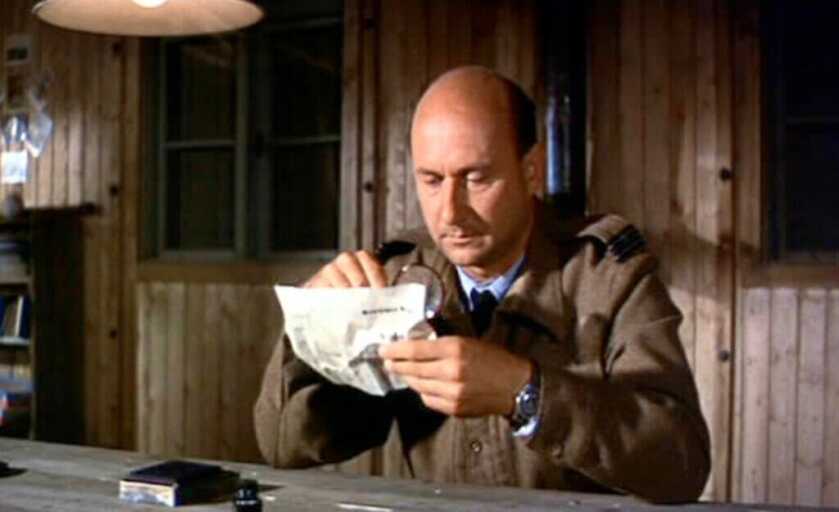
Experience In Fake War
In the 1963 war classic The Great Escape, Pleasence played Colin Blythe, a good-natured POW in Luftwaffe Stalag III with a gift for forging documents. The movie orbits around the prisoners’ tunneling exploits, and the likable Blythe character’s acumen as a forger is critical to the proposed mass escape. However, it is revealed in the narrative that he is also steadily going blind. All of the close-range detailed work replicating government documents has taken a toll. The character’s primary drama arises from the fact that his skills are decisive to the escape effort, yet he is not really in any shape to try to evade occupied Europe. Blythe eventually participates anyway only to be cut down by German guards when he is unable to see well enough to avoid them.
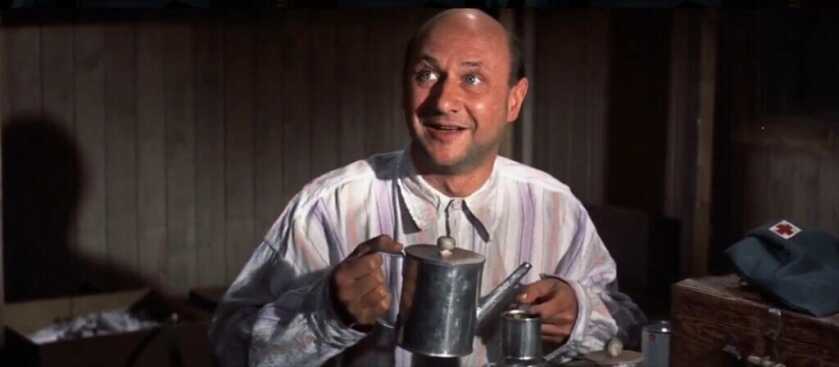
The film magazine Variety singled out Pleasence along with Richard Attenborough as having rendered particularly powerful performances. Considering the ensemble cast included such Hollywood greats as Steve McQueen, James Garner, Charles Bronson, James Coburn, David McCallum, and the aforementioned Richard Attenborough, that’s pretty high praise. Variety actually described Colin Blythe as, “the film’s most touching character.”
During his 42 years in the business, Pleasence played cowboys, pastors, priests, professors, villains, and sundry horror characters both supernatural and otherwise. While Pleasence’s repertoire spanned an amazing range, the reason his depiction of British POW Colin Blythe resonated so was that he was playing that part from life. Donald Pleasence spent a substantial portion of World War 2 languishing in a German prisoner-of-war camp.
The Actor Goes to War
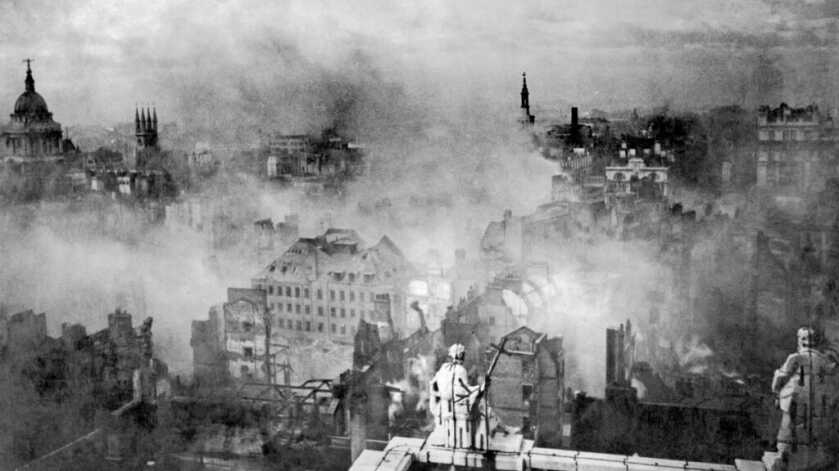
Based on his fundamentalist Methodist upbringing, Pleasence declared himself a conscientious objector when the war broke out. However, living and working as he was near London, he saw firsthand the raw carnage wrought upon the British people by the Luftwaffe during the Blitz of 1940. Spurred on to do his bit, in the fall of that year he volunteered for the Royal Air Force.
Pleasence trained as a wireless operator and was assigned to No 166 Squadron, RAF Bomber Command. He ultimately flew sixty combat missions over occupied Europe. The soft-spoken pacifist actor Donald Pleasence was the real freaking deal.
Radio communication was very different during World War 2 than it is today. Most heavy bombers flew with a dedicated wireless operator. This technician was responsible for all radio communication onboard the airplane, typically using Morse code. Depending upon the particular aircraft, the wireless operator often also manned a gun position as well. From what I could find, most of Pleasence’s combat time was logged aboard Avro Lancaster heavy bombers.
Strategic Philosophy
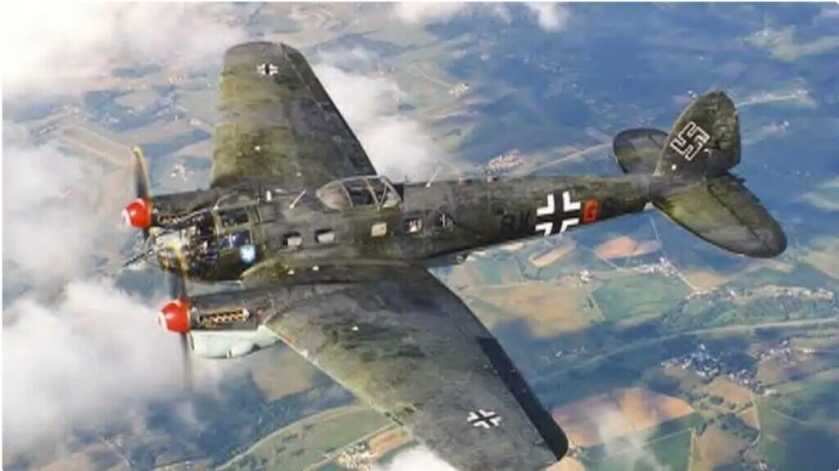
All the major players in WW2 had to figure out how to employ combat aircraft for themselves from scratch. There wasn’t a terribly deep well of institutional knowledge from which to draw. The Germans focused on fast medium bombers, while the Japanese refined their carrier-based striking power. The Russians occupied their time just trying desperately not to be annihilated by the Germans. The Italians and the French did whatever they did, and the Brits and Americans split the workday in half.
The British thought that unescorted daylight strategic bombing was suicide, so they opted to fly predominantly at night. The Americans, maniacs that we were, just packed as many fifty-caliber machineguns as possible into our B-17 Flying Fortresses and B-24 Liberators and dared the Germans to do something about it. The result was a legitimate around-the-clock bombing that ultimately broke the back of the German war machine.
Secondary Gain
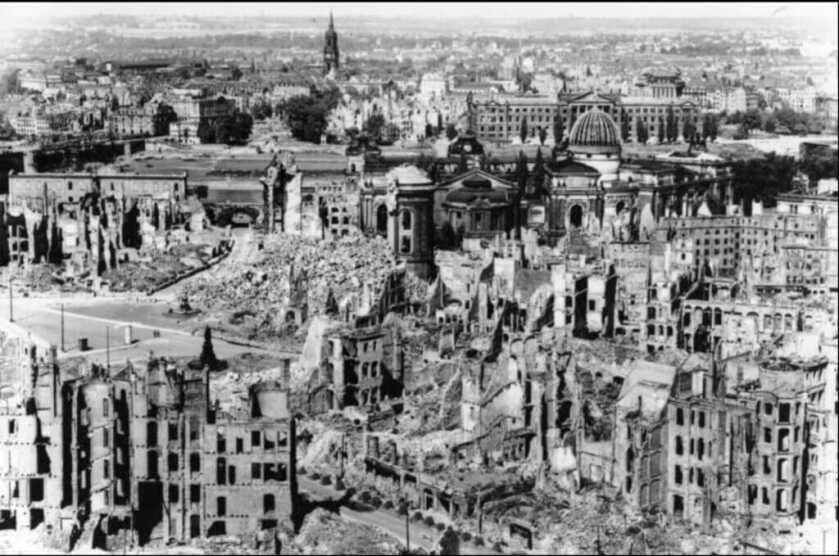
A dirty little secret was that blowing the holy bejeebers out of German industry was not necessarily the primary objective of the American strategic bombing campaign. Depriving the krauts of such critical stuff as petrol and ball bearings was a big deal, to be sure, but Albert Speer decentralized production and ramped up everything. By the end of the war, the Germans were still producing mindboggling volumes of ordnance.
Along the way, however, the US Army Air Corps slaughtered German fighter pilots at a rate far beyond Germany’s capacity to replace them. By the closing months of the war, the skies above Germany were essentially free from experienced Luftwaffe fighter jocks. Massive 1,000-plane daylight bombing raids did that.
The British Philosophy on the Heavy Bomber
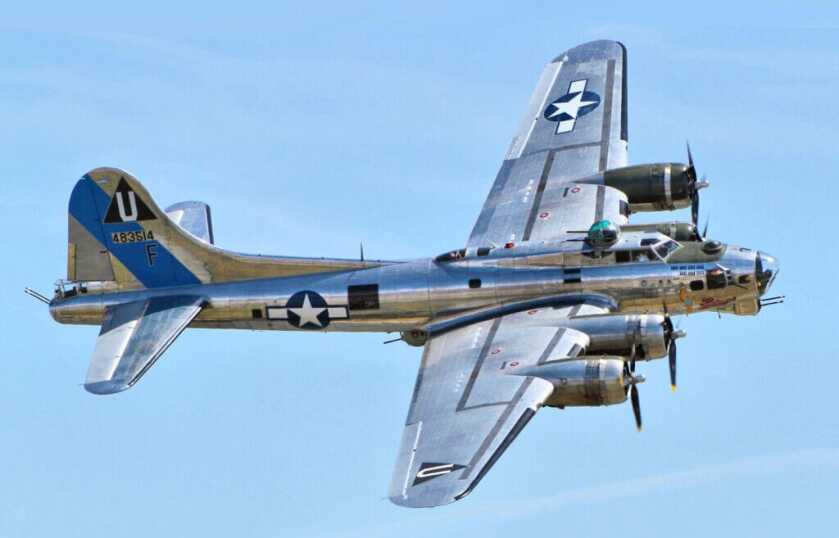
American heavy bombers reflected the American ethos. They were huge, powerful, inefficient, and bristling with guns. Important stuff, like the pilots, were kept redundant for safety. All multi-engine American bombers were designed to be flown with both a pilot and a copilot. That was because we were a really big rich country with both the meat and the resources to make lots of highly capable combat pilots. By contrast, the British operated in a more austere space.
The Lancaster, the Halifax, and the Stirling were the principal four-engine heavy bombers operated by the RAF. The Lancasters that Donald Pleasence operated sported a crew of seven and but a single pilot. The plane could carry up to 14,000 pounds of bombs. The Lancaster’s eight relatively lightweight defensive machineguns were chambered in .303 British.
By contrast, the B-17 required a crew of ten and sported thirteen .50-caliber heavy machine guns. The Flying Fortress carried between 4,000 and 8,000 pounds of bombs depending upon the required range. The two planes were designed for very different roles.
The Mission
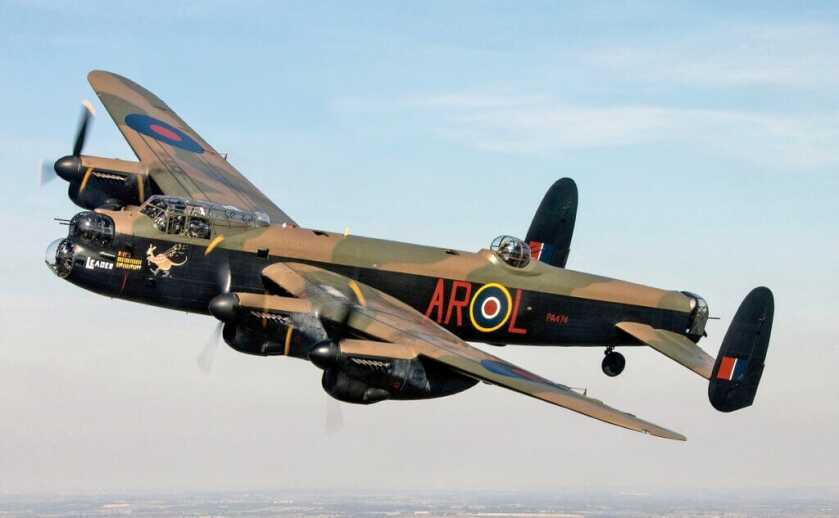
Donald Pleasence’s Lancaster, NE112, was shot down on 31 August 1944, during an attack on Agenville, France. Pleasence obviously survived the crash, but he was taken prisoner in short order. He spent the rest of the war at Stalag Luft 1 near Barth in Western Pomerania in Germany. During his time in captivity, he produced and acted in a variety of ad hoc theater productions to help entertain his fellow captives.
READ MORE: Dr Dabbs – Rod Serling: The Voyage into the Twilight Zone
Stalag Luft 1 opened in 1941, ultimately playing home to both British and American flyers. The guards abandoned the camp in the face of Soviet advances in April 1945. During its period of operation, Stalag 1 prisoners dug some 140 tunnels trying to escape. Unlike the other actors in the movie, Donald Pleasence actually did that for real.
The Rest of Pleasence’s Story
Pleasence penned a children’s book in 1977 titled Scouse the Mouse. Like most rich, famous people, however, his personal life was a hot mess. He was married four times and fathered five daughters.
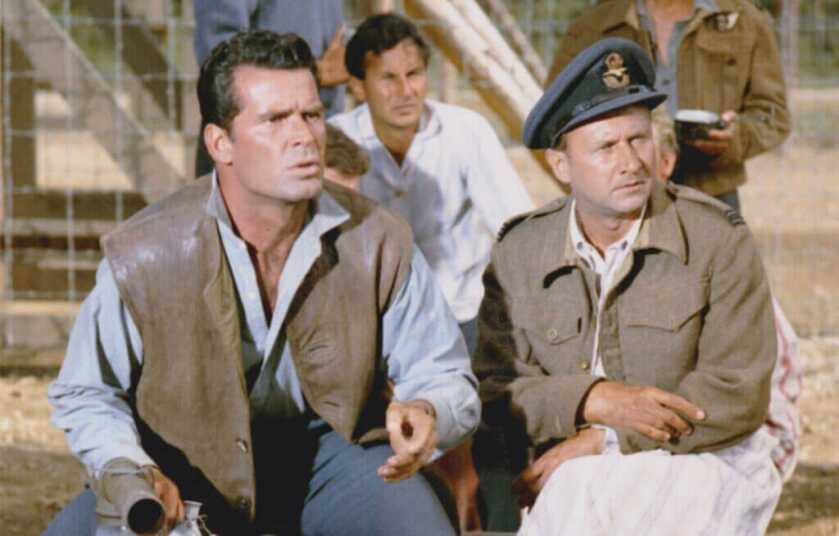
Donald Pleasence had a heart valve replaced in 1995 and developed some fearsome congestive heart failure as a result. He succumbed to heart disease in February of that year in Saint-Paul-de-Vence, France, at age 76. Interestingly, however, the RAF wireless operator-turned-actor’s arguably greatest role was a big-screen rendition of the part he actually played for real during World War 2.
*** Buy and Sell on GunsAmerica! ***


Great to hear from you again in this new year, Will! As usual, I enjoyed the heck out of your article! I lost my medical and can no longer fly after a botched lumbar fusion, but my first choice for flying a “dream” warplane was the Vought F4U Corsair. Second on the list was the B-17 Flying Fortress! Maybe in the Millennial Kingdom?!? (sans any weapons, naturally)
Great story Dr. Dabbs. I look for your articles in every Guns America email.
I second the nomination for Don as the lunatic father/preacher in Charlton Heston’s favorite movie “Will Penny”. He was quite a dancer in that- check it out.
Secondly, regarding Germany right up to war’s end- it should also be noted that in addition to their prolific war manufacturing, their determination to execute enemies of their government continued even during the the Russian attack on Berlin.
England declared war on Germany in September 1939.
World War II officially ended on 8 May 1945.
Donald Pleasance’s Lancaster was shot down 31 Aug 1944.
Eight months confinement is not a “substantial” part of the war.
The word “materiel” is misspelled in the caption below the photo of bombed out Dresden.
Did read: “Germany still churned out vast quantities of war material right up until the end of the conflict.”
Otherwise, this is another excellently researched and written article Mr. Dobbs.
It’s too bad that today’s actors are make-believe beta boys instead of real men with real world adventures.
As a suggestion, do some stories on Ernest Hemingway, Gary Cooper, Ronald Reagan, Charlton Heston. & Tom Selleck,
Each of them were (are) prolific outdoorsmen with a fine appreciation for firearms and sporting arms.
I love your history articles! Some very cool info. Thank you!
Donald Pleasance rose to the occasion when duty called. Different times….
Here’s a story worth repeatin:
The Lonely War of Lt. Eric Fisher Wood, Jr.
Saturday Evening Post, December 20, 1947 by R. Ernest Dupuy, Col. USA, Ret.
Thanks for that article, it was awesome!
A lot of friends and I would watch The Great Escape every year when it was broadcast, it’s still one of my favorite movies. Until now I had no Idea of the role that Donald Pleasence played in WW!!, he sounds like an amazing man.
Thanks again for this article, wishing a wonderful day to you and yours.
Pleasance could be a real scene stealer. He was superb in Will Penny and Hallelujah Trail.
Great article as usual. For what it’s worth, Russian Air tactics against armor during WWII would make an interesting article.